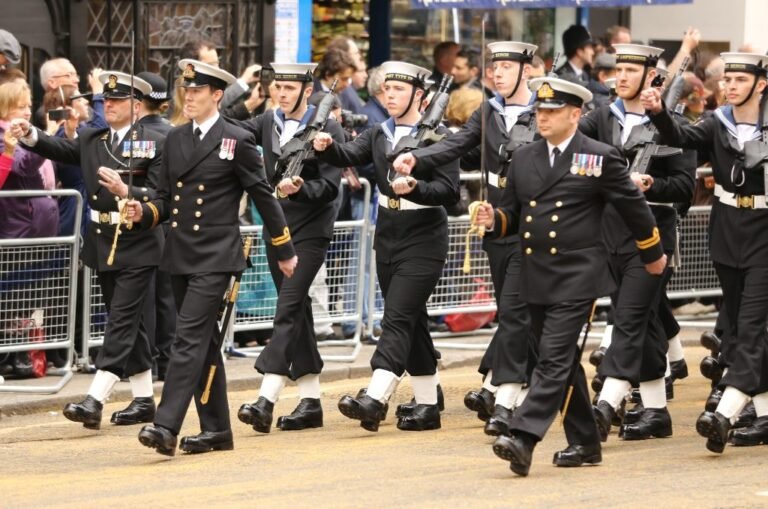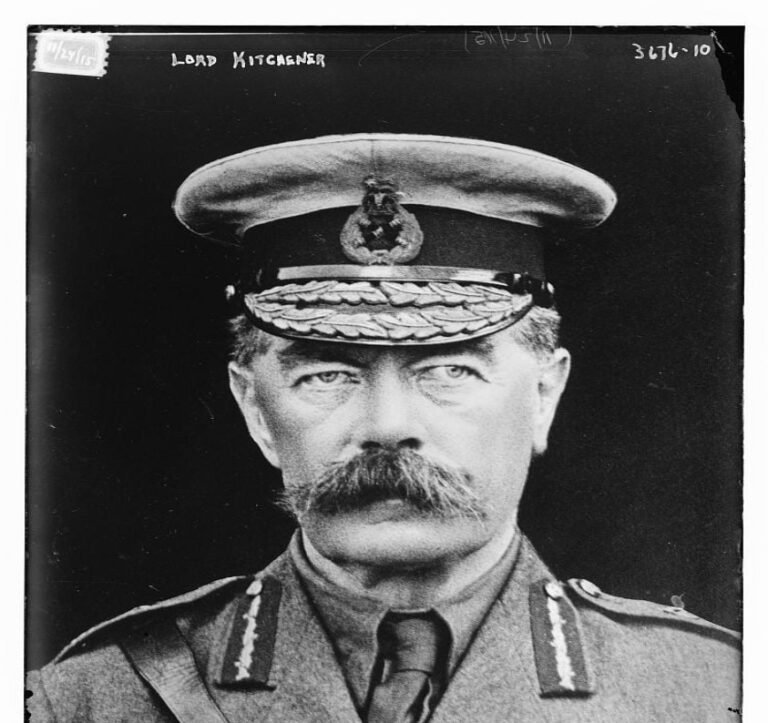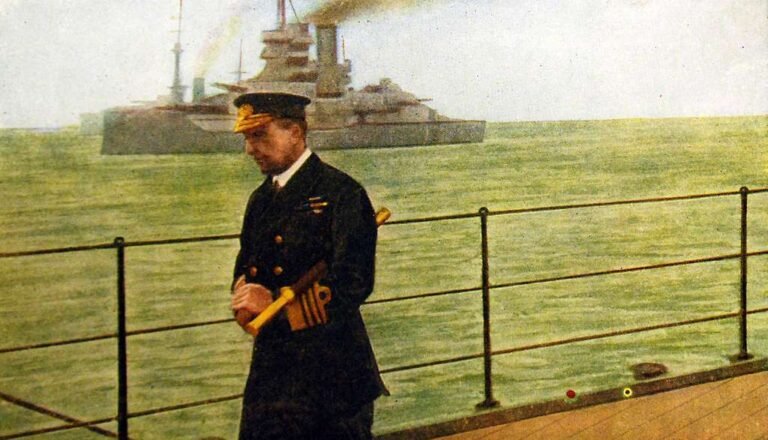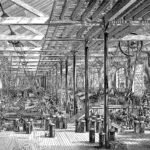Winston Churchill was a prominent British leader. He is known for his role in World War II.
Churchill’s speeches inspired a nation during its darkest hours. His leadership and determination helped guide Britain to victory. Born in 1874, he had a long and varied career. He served as a soldier, journalist, and politician. He was twice Prime Minister of the United Kingdom.
His legacy includes his wit, wisdom, and unyielding spirit. Discover the life and achievements of this remarkable man. Learn how his actions changed the course of history. Join us on a journey through Winston Churchill’s fascinating life.
Early Life And Influences
Winston Churchill is a name synonymous with leadership and resilience. But before he became the stalwart Prime Minister of the United Kingdom, his early life and influences shaped the man he would become. Understanding his beginnings can offer valuable insights into his character and motivations.
Family Background
Winston Churchill was born on November 30, 1874, into a prominent family. His father, Lord Randolph Churchill, was a successful politician. His mother, Jennie Jerome, was an American socialite. This unique mix of British aristocracy and American enterprise had a significant impact on him.
Churchill’s relationship with his parents was complex. His father was often distant and critical, while his mother was busy with social engagements. Despite this, he admired his father’s political career and was deeply influenced by his mother’s ambition and charm.
Education And Military Career
Churchill’s educational journey began at Harrow School, where he struggled initially but soon found his footing. He was not an exemplary student, often ranking low in his class. Yet, he excelled in subjects that interested him, like history and English.
After Harrow, Churchill attended the Royal Military Academy at Sandhurst. Here, he discovered a passion for the military. He graduated eighth out of a class of 150, a significant achievement that set the stage for his future military career.
Churchill’s early military service took him to Cuba, India, and Sudan. These experiences broadened his worldview and honed his leadership skills. He faced real combat, which gave him a firsthand understanding of warfare’s complexities.
Have you ever considered how much your early experiences shape your future? Churchill’s formative years were filled with challenges and opportunities that prepared him for the monumental tasks ahead.
What aspects of your early life have had the most significant impact on who you are today? Reflecting on this can offer powerful insights and perhaps even inspire your next steps.

Credit: en.wikipedia.org
Rise To Political Power
Winston Churchill’s rise to political power began with his election to Parliament in 1900. His leadership during World War II solidified his status as a prominent figure in British history.
The rise of Winston Churchill to political power is a captivating tale of resilience, strategic maneuvering, and sheer determination. His journey from a young, ambitious man to one of the most influential leaders in British history is nothing short of remarkable. Understanding his early political career provides valuable insights into how he shaped the course of history.
Entry Into Politics
Churchill’s entry into politics was influenced by his family’s legacy and his own ambitions. He was born into the aristocratic Spencer-Churchill family, which had a history of political involvement. This background undoubtedly gave him a head start.
In 1900, at the age of 25, Churchill was elected as the Member of Parliament for Oldham. His early speeches were bold and charismatic, capturing the attention of both supporters and critics. He quickly gained a reputation for his oratory skills.
What can you learn from Churchill’s early political career? It reminds us that leveraging one’s background while adding personal flair can be a powerful combination.
Key Political Roles
Throughout his career, Churchill held several key political roles that shaped his path to power. One of his first significant positions was as the President of the Board of Trade in 1908. Here, he introduced social reforms like the Labour Exchanges Act, which helped reduce unemployment.
Later, as the First Lord of the Admiralty, Churchill played a crucial role in modernizing the Royal Navy. His foresight in naval strategy proved vital during World War I. This period highlighted his ability to adapt and innovate in challenging times.
But his most defining role came during World War II when he became the Prime Minister in 1940. His leadership during this tumultuous period showcased his resilience and unwavering commitment to his country.
Ask yourself, how can you adapt Churchill’s strategic thinking and resilience in your own life? Whether in career or personal growth, these traits can lead to significant achievements.
Churchill’s rise to political power is not just about his titles and roles; it’s about the lessons of persistence, adaptation, and strategic foresight. How will you apply these lessons in your journey?
World War II Leadership
Winston Churchill’s leadership during World War II remains a defining moment in history. His unique ability to inspire and mobilize the British people was unparalleled. Churchill’s unwavering resolve and strategic insights led to some of the most critical decisions of the war.
Battle Of Britain
The Battle of Britain was a turning point in World War II. Churchill’s famous speech, “We shall fight on the beaches,” galvanized the nation. He instilled hope and determination when defeat seemed imminent.
Churchill’s decision to focus on air defense saved Britain from potential invasion. This strategic move emphasized the importance of the Royal Air Force. The RAF’s eventual victory marked the first major defeat of Hitler’s military forces.
Strategic Decisions
Churchill’s strategic decisions were crucial to the Allied victory. He prioritized the development of radar technology, which proved vital in detecting enemy aircraft. This decision significantly boosted Britain’s defensive capabilities.
Another pivotal choice was forming alliances. Churchill’s partnership with Roosevelt and Stalin created a united front against the Axis powers. This collaboration was instrumental in planning key operations like D-Day.
How do you think Churchill’s leadership style would be received in today’s political climate? The blend of resilience, strategic foresight, and eloquence set him apart. His approach offers valuable lessons in leadership and crisis management.
Oratory Skills
Winston Churchill was known for his incredible oratory skills. His speeches were powerful and moving. Churchill’s words could inspire and comfort millions. He had a unique ability to connect with people through his voice.
Famous Speeches
Churchill delivered many famous speeches during his lifetime. One of the most notable is the “Blood, Toil, Tears, and Sweat” speech. This speech was given in 1940 when he became Prime Minister. It was a call to action and a promise of hard work.
Another famous speech is “We Shall Fight on the Beaches.” This speech showed Churchill’s determination during World War II. He assured the British people that they would never surrender. It boosted the nation’s morale during a difficult time.
Impact On Morale
Churchill’s speeches had a significant impact on morale. They were delivered during some of the darkest times in history. His words offered hope and strength to the British people.
During the bombings of London, Churchill’s speeches kept spirits high. He reassured citizens that victory was possible. His voice became a symbol of resilience and courage.
Churchill’s oratory skills helped unite the country. His speeches were a source of comfort and motivation. They played a crucial role in keeping morale up during the war.
Personal Traits And Habits
Winston Churchill, one of history’s most iconic leaders, had unique personal traits and habits that significantly contributed to his effectiveness. His daily routine and work ethic were meticulously structured, reflecting his disciplined yet eccentric personality. Understanding these aspects of Churchill’s life provides valuable insights into how he managed to achieve so much.
Daily Routine
Churchill’s daily routine was anything but ordinary. He often started his day in bed, where he would read newspapers, dictate letters, and consult with aides. This allowed him to stay informed and productive without even leaving his bedroom.
He was known to take naps in the afternoon, a habit he believed helped him stay energetic and alert. These naps were not just short rests; they could last up to two hours. Churchill was convinced that this practice doubled his productivity.
His evenings were equally structured. After dinner, he would work again, often late into the night. This schedule enabled him to maintain a high level of productivity while also ensuring he had time to relax and unwind.
Work Ethic
Churchill’s work ethic was relentless. He was known for his unwavering dedication and intense focus on his tasks. He believed in the power of hard work and often pushed himself beyond what most would consider reasonable limits.
He was a prolific writer, producing numerous books, articles, and speeches. His dedication to writing was so strong that he won the Nobel Prize in Literature in 1953. This accomplishment underscores his commitment to excellence in every endeavor he undertook.
Churchill’s ability to prioritize and delegate effectively was another cornerstone of his work ethic. He understood that he couldn’t do everything himself and trusted his team to handle various responsibilities. This approach allowed him to focus on the most critical tasks and make informed decisions quickly.
What unique habits do you incorporate into your daily routine to boost productivity? Learning from Churchill’s disciplined yet flexible approach can inspire us to refine our own routines and work ethics.
Relationships With Allies
Winston Churchill built strong relationships with allies during World War II. His leadership and speeches inspired cooperation and trust.
Winston Churchill’s relationships with his allies during World War II were crucial to the success of the Allied forces. His ability to collaborate, negotiate, and sometimes compromise was key to maintaining a united front. Let’s explore how Churchill managed his relationships with major allies like the United States and the Soviet Union.
U.S. Collaboration
Churchill’s relationship with the United States, particularly with President Franklin D. Roosevelt, was one of mutual respect and strategic necessity. They exchanged numerous letters and held several meetings. Their famous rendezvous on the battleship HMS Prince of Wales in 1941 led to the Atlantic Charter, outlining the Allies’ goals for the post-war world.
Churchill knew the importance of U.S. military and economic strength. He worked tirelessly to ensure American support. This collaboration was visible during the D-Day invasion, where U.S. and British forces worked seamlessly together.
You might be surprised to know that Churchill spent a significant amount of time in the U.S., even giving speeches to rally support. Have you ever considered how vital personal diplomacy is in global politics?
Soviet Union Dynamics
Churchill’s relationship with Joseph Stalin of the Soviet Union was more complex. Initially, he was wary of Stalin’s motives and distrusted Soviet intentions. However, the necessity of defeating Nazi Germany brought them together.
Churchill and Stalin’s meetings were often tense. Churchill had to balance his anti-Communist sentiments with the need for Soviet military power. Despite the differences, they managed to coordinate on major offensives against the Axis powers.
One notable example of their cooperation was the Tehran Conference in 1943. Here, Churchill, Roosevelt, and Stalin planned the final strategy for the war against Nazi Germany. Can you imagine the level of compromise and negotiation required in such high-stakes discussions?
Churchill’s ability to maintain these crucial alliances was a testament to his diplomatic skills. His relationships with the U.S. and the Soviet Union were pivotal in shaping the outcome of World War II. Understanding these dynamics gives us valuable insights into the complexities of international relations.
Post-war Contributions
Winston Churchill’s post-war contributions significantly shaped modern Europe and global literature. His efforts went beyond wartime leadership, influencing peace and culture.
Rebuilding Europe
Churchill played a key role in rebuilding Europe after World War II. He advocated for unity among European nations to prevent future conflicts. His vision led to the creation of the European Union. He supported the Marshall Plan, which helped European economies recover. His speeches inspired hope and resilience among war-torn countries.
Nobel Prize In Literature
Churchill was awarded the Nobel Prize in Literature in 1953. His writings included historical accounts, memoirs, and speeches. His book series, “The Second World War,” provided detailed insights into the war. His eloquence and storytelling captivated readers worldwide. The Nobel Prize recognized his literary contributions to history and culture.

Credit: www.biography.com
Legacy And Impact
Winston Churchill remains a towering figure in history. His leadership during World War II shaped the modern world. His speeches inspired millions. But his legacy goes beyond wartime leadership. Churchill’s impact is felt in politics, culture, and leadership styles today.
Modern Leadership Lessons
Churchill’s leadership teaches valuable lessons. He showed the power of resilience. Even in the darkest times, he never gave up. His ability to communicate clearly was another strength. His speeches were simple yet powerful. Leaders today can learn from his ability to inspire. Churchill also valued teamwork. He knew the importance of relying on others. He listened to different views before making decisions.
Cultural Representation
Churchill’s impact is seen in culture too. Films, books, and plays often feature him. He is portrayed as a symbol of courage. His famous quotes are still used today. They remind us of his wisdom and wit. Churchill’s life has inspired many stories. These representations keep his legacy alive. They help new generations learn about him.
FAQs
What Is Winston Churchill Most Famous For?
Winston Churchill is most famous for leading Britain during World War II. He was a prominent political leader and orator.
Why Was Churchill Removed From Office?
Winston Churchill lost the 1945 general election due to public desire for social reform and change post-World War II.
What Was Winston Churchill’s Cause Of Death?
Winston Churchill died of a stroke on January 24, 1965. He was 90 years old at the time of his death.
What Are 5 Facts About Winston Churchill?
Winston Churchill was born in 1874. He served as British Prime Minister during WWII. He won the Nobel Prize in Literature. Churchill was a skilled orator. He died in 1965.
Conclusion
Winston Churchill’s legacy continues to inspire many today. His leadership during tough times remains unmatched. Lessons from his life are timeless. They teach resilience and courage. Churchill’s speeches still echo with power. They remind us of the strength of words.
Reflect on his life for motivation. Learn from his experiences. Apply his wisdom in your daily life. Churchill’s story shows the impact of determination. His influence will never fade.








